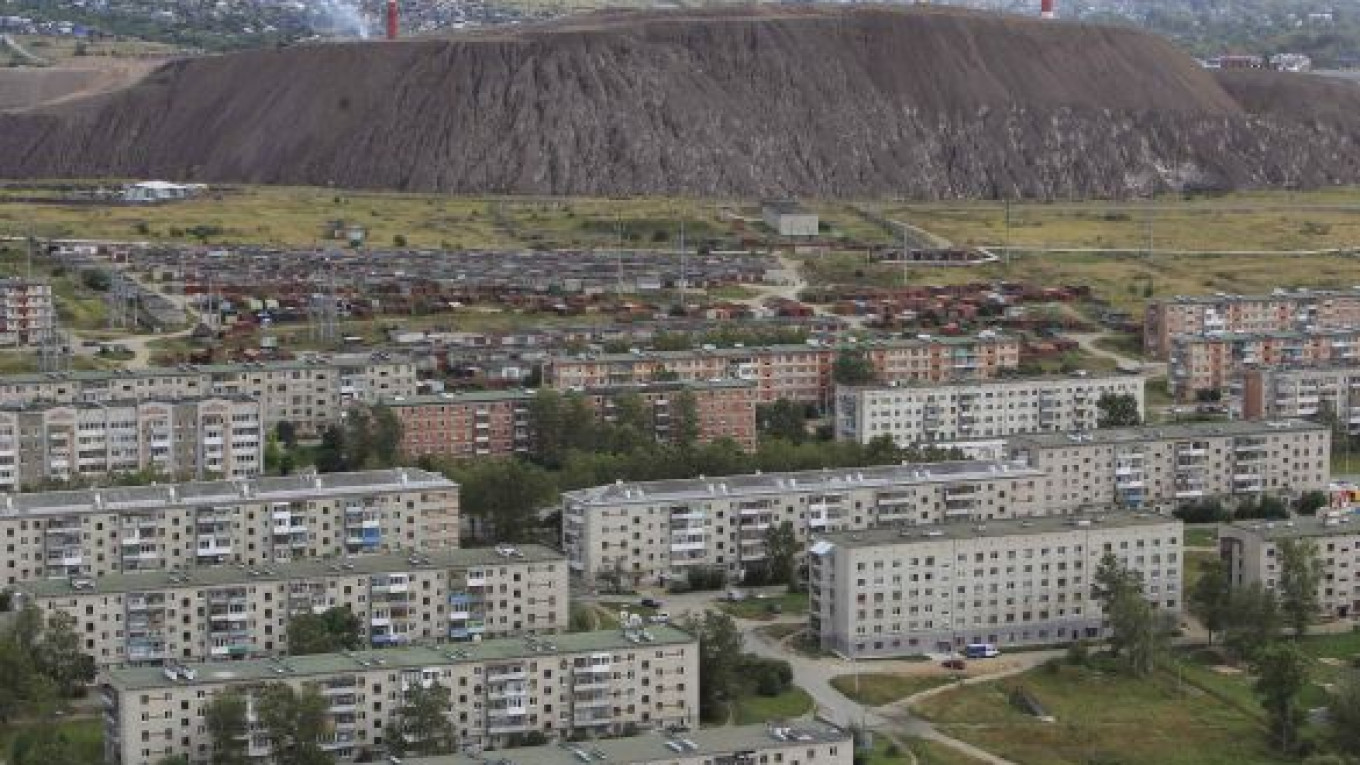Belarussian Prime Minister Pyotor Prokopovich said Saturday that "there is no politics" in the dispute between fertilizer producers in Belarus and Russia that triggered a CEO's arrest and a trade war between Moscow and Minsk, RIA Novosti reported.
Belarussian authorities on Friday converted the status of Uralkali CEO Vladislav Baumgertner from detention to arrest. He and four other Uralkali executives are accused of causing losses of about $100 million by pulling out of a cartel it operated with Belaruskali in late July, Bloomberg reported.
The pull out caused global prices for potash, one of Minsk's most vital exports, to crash and the value of Belaruskali to plunge.
Prokopovich told a news agency Saturday that the dispute is nothing but "normal relations between two business partners."
"They used to work together, and now they have split," he was quoted by Belta as saying. "There is no and will never be no politics."
But the Kremlin on Friday demanded the immediate release of the company's chief executive Vladislav Baumgertner, who was arrested Monday following a meeting with the Belarussian Prime Minister and now faces up to 10 years in jail with charges of causing economic damage to the country.
Industry and Trade Minister Denis Manturov on Friday called Belarus' actions "absurd" and promised "severe" retaliation from the Russian side, RIA Novosti reported.
The Federal Veterinary and Phytosanitary Inspection Service announced Friday that it was temporarily restricting pork imports from Belarus. The restrictions were put in place due to a fear that the products might be contaminated with African swine fever virus, according to an official statement.
Meanwhile, Russian diplomats visited Baumgertner in his cell at the Belarussian security service's headquarters Friday morning, Kommersant reported. At his request, they brought him water, apples and a copy of Leo Tolstoy's 800-page novel "Anna Karenina." The Belarussian authorities have not allowed Baumgernter to have a meeting with his mother.
He complained to diplomats that he has only had one meeting with lawyers since being detained. There is now an agreement with the authorities in Minsk that Belarussian lawyers will meet with him at least once per week, said Gavriil Mamontov, the first secretary of the Russian Embassy in the Belarus capital.
"He is in good health, although he looks tired," Mamontov added.
In a statement published Friday, Uralkali thanked the Russian government for its support. "The company denies all the charges made against Vladislav Baumgertner by the Investigative Committee of the Belarus Republic and is taking all necessary measures for his speedy release," the statement also said.
Uralkali's finance director, Viktor Belyakov, is currently filling in as chief executive while his boss is in custody.
The conflict did not stop President Vladimir Putin from sending a birthday greeting to Belarussian President Alexander Lukashenko, the Russian News Service reported, citing Putin's spokesman Dmitry Peskov. Lukashenko turned 59 on Friday, and Peskov said that such greetings were standard protocol.
The restrictions put in place by the Russian Federal Veterinary and Phytosanitary Inspection Service complicate export for the Belarussian side.
The service announced Friday that its deputy head, Alexei Saurin, sent a letter to his Belarussian counterpart, Yuri Pivovarchik, in which he outlined the procedure the country's pork must go through to be eligible for entry into Russia.
The rules state that pork products, feed and genetic materials, such as porcine cells for scientific study, have not undergone heat treatments at temperatures of no lower than 72 degrees Celsius for at least 30 minutes, which would ensure the destruction of the virus.
This new requirement will be in place until the virus is eradicated on Belarussian territory, or until the sides or the Eurasian Economic Commission determine rules for how to identify farmers whose stock has not been affected.
To dramatize the situation, the Russian health watchdog posted a video from the entertainment channel TNT about African swine fever on its website and opened a hotline to handle concerns about the virus.
Coincidentally, on Thursday Russia announced the end of a ban on Lithuanian pork.
Russia's Federal Consumer Protection Service hinted at limiting Belarussian milk imports earlier this week, claiming that a third of the products had some form of violations.
Russian officials have announced that they will cut oil supplies to Belarus by 25 percent in September and threatened to extend the cuts for several months, Reuters reported. On Thursday, Deputy Prime Minister Arkady Dvorkovich warned that Moscow would investigate Belarussian trade practices concerning petroleum products, while Belarus officials said they were considering charging billionaire Suleiman Kerimov, who is the biggest shareholder of Uralkali.
The fall of Belaruskali output would be a severe blow for Belarus' economy. The nutrient accounts for 12 percent of state revenue and about 10 percent of export income, Reuters reported.
There are signs that the breakup of the joint venture with Uralkali is already causing problems for the country. A senior official at Belaruskali said it had suspended two of its four potash mine complexes for maintenance.
Contact the author at e.smirnova@imedia.ru
A Message from The Moscow Times:
Dear readers,
We are facing unprecedented challenges. Russia's Prosecutor General's Office has designated The Moscow Times as an "undesirable" organization, criminalizing our work and putting our staff at risk of prosecution. This follows our earlier unjust labeling as a "foreign agent."
These actions are direct attempts to silence independent journalism in Russia. The authorities claim our work "discredits the decisions of the Russian leadership." We see things differently: we strive to provide accurate, unbiased reporting on Russia.
We, the journalists of The Moscow Times, refuse to be silenced. But to continue our work, we need your help.
Your support, no matter how small, makes a world of difference. If you can, please support us monthly starting from just $2. It's quick to set up, and every contribution makes a significant impact.
By supporting The Moscow Times, you're defending open, independent journalism in the face of repression. Thank you for standing with us.
Remind me later.


